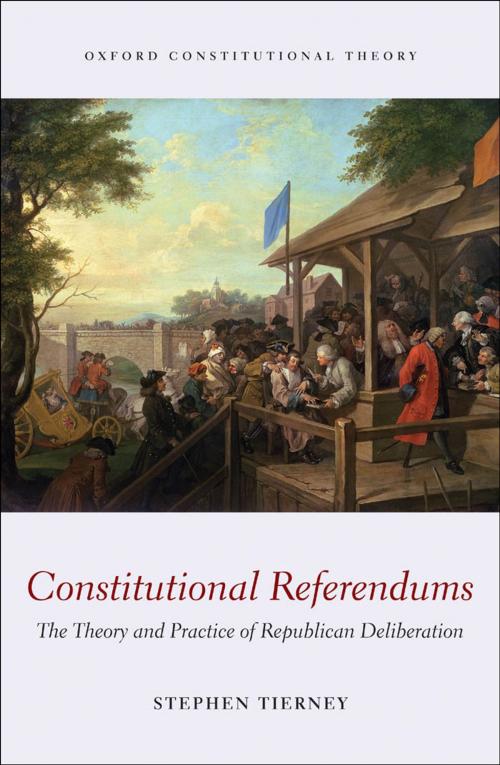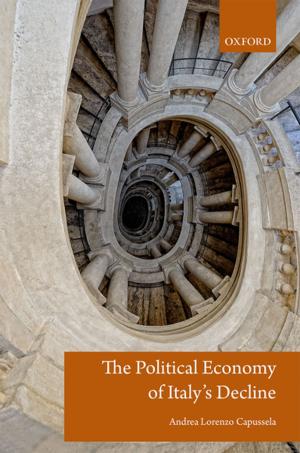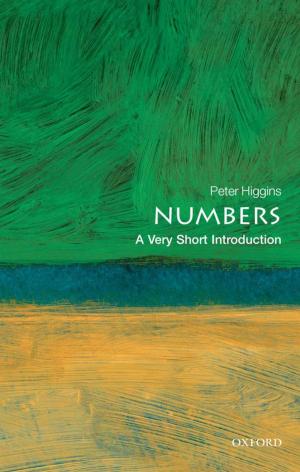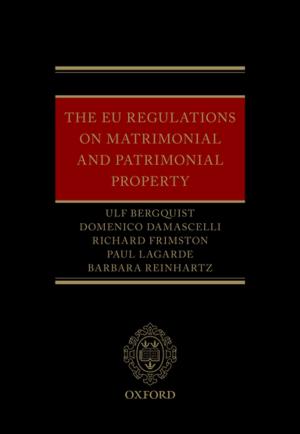Constitutional Referendums
The Theory and Practice of Republican Deliberation
Nonfiction, Reference & Language, Law, Constitutional, Social & Cultural Studies, Political Science| Author: | Stephen Tierney | ISBN: | 9780191629082 |
| Publisher: | OUP Oxford | Publication: | April 5, 2012 |
| Imprint: | OUP Oxford | Language: | English |
| Author: | Stephen Tierney |
| ISBN: | 9780191629082 |
| Publisher: | OUP Oxford |
| Publication: | April 5, 2012 |
| Imprint: | OUP Oxford |
| Language: | English |
The use of referendums around the world has grown remarkably in the past thirty years and, in particular, referendums are today deployed more than ever in the settlement of constitutional questions, even in countries with little or no tradition of direct democracy. This is the first book by a constitutional theorist to address the implications of this development for constitutional democracy in a globalizing age, when many of the older certainties surrounding sovereignty and constitutional authority are coming under scrutiny. The book identifies four substantive constitutional processes where the referendum is regularly used today: the founding of new states; the creation or amendment of constitutions; the establishment of complex new models of sub-state autonomy, particularly in multinational states; and the transfer of sovereign powers from European states to the European Union. The book, as a study in constitutional theory, addresses the challenges this phenomenon poses not only for particular constitutional orders, which are typically structured around a representative model of democracy, but for constitutional theory more broadly. The main theoretical focus of the book is the relationship between the referendum and democracy. It addresses the standard criticisms which the referendum is subjected to by democratic theorists and deploys both civic republican theory and the recent turn in deliberative democracy to ask whether by good process-design the constitutional referendum is capable of facilitating the engagement of citizens in deliberative acts of constitution-making. With the referendum firmly established as a fixture of contemporary constitutionalism, the book addresses the key question for constitutional theorists and practitioners of how might its operation be made more democratic in age of constitutional transformation.
The use of referendums around the world has grown remarkably in the past thirty years and, in particular, referendums are today deployed more than ever in the settlement of constitutional questions, even in countries with little or no tradition of direct democracy. This is the first book by a constitutional theorist to address the implications of this development for constitutional democracy in a globalizing age, when many of the older certainties surrounding sovereignty and constitutional authority are coming under scrutiny. The book identifies four substantive constitutional processes where the referendum is regularly used today: the founding of new states; the creation or amendment of constitutions; the establishment of complex new models of sub-state autonomy, particularly in multinational states; and the transfer of sovereign powers from European states to the European Union. The book, as a study in constitutional theory, addresses the challenges this phenomenon poses not only for particular constitutional orders, which are typically structured around a representative model of democracy, but for constitutional theory more broadly. The main theoretical focus of the book is the relationship between the referendum and democracy. It addresses the standard criticisms which the referendum is subjected to by democratic theorists and deploys both civic republican theory and the recent turn in deliberative democracy to ask whether by good process-design the constitutional referendum is capable of facilitating the engagement of citizens in deliberative acts of constitution-making. With the referendum firmly established as a fixture of contemporary constitutionalism, the book addresses the key question for constitutional theorists and practitioners of how might its operation be made more democratic in age of constitutional transformation.















